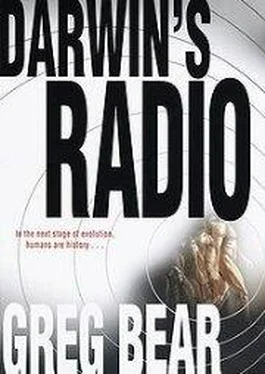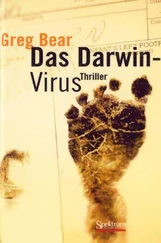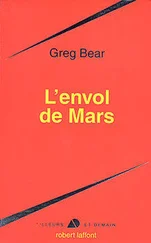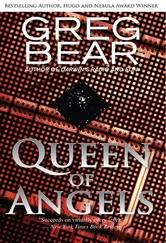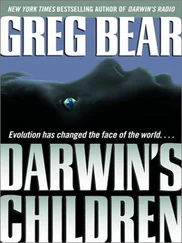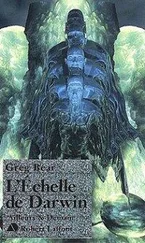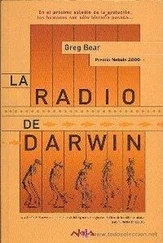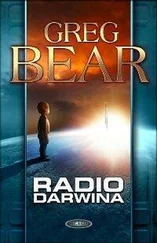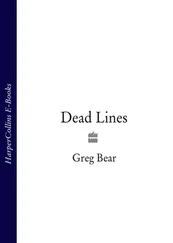“I believe in work,” Dicken said, embarrassed that his thoughts had delayed a response for so long.
Simply cutting himself off from Kaye Lang, and failing to support her in the face of Jackson’s ambush, had been an incomprehensible and unforgivable mistake. He regretted it more with each day, but it was too late to retie old and broken threads. He could still build a conceptual wall and work diligently on those projects assigned to him.
They took the elevator to the seventh floor, turned left, and found the small staff meeting room in the middle of a long beige and pink corridor.
Bao seated herself. “Christopher, you know Anita, Preston.”
They greeted Dicken with little cheer.
“No good news, I’m afraid,” Dicken reported, seating himself opposite Preston Meeker. Meeker, like his colleagues within the small, close room, represented the quintessence of a child health specialty — in his case, neonatal growth and development.
“Augustine still at it?” Meeker asked, pugnacious from the start. “Still pushing RU-486?”
“In his defense,” Dicken said, and paused for a moment to collect his thoughts, to present this old false face more convincingly, “he has no alternatives. The retrovirus folks at CDC agree that the expression and completion theory makes sense.”
“Children as carriers of unknown plagues?” Meeker pushed out his lips and made a pishing noise.
“It’s a highly defensible position. Added to the likelihood that most of the new babies will be born deformed—”
“We don’t know that,” House said. House was the acting deputy director of the National Institute of Child Health and Human Development; the former deputy director had resigned two weeks ago. A great many NIH people associated with the SHEVA Taskforce were resigning.
With hardly a pang, Dicken thought that once again Kaye Lang had proved herself a pioneer by being the very first to leave.
“It’s indisputable,” Dicken said, and had no trouble telling her this, because it was true: no normal infants had been born yet to a SHEVA-infected mother. “Out of two hundred, most have been reported severely deformed. All have been born dead.” But not always deformed, he reminded himself.
“If the president agrees to start a national campaign using RU-486,” Bao said, “I doubt the CDC will be allowed to remain open in Atlanta. As for Bethesda, it is an intelligent community, but we are still in the Bible Belt. I have already had my house picketed, Christopher. I live surrounded by guards.”
“I understand,” Dicken said.
“Perhaps, but does Mark understand? He does not return my calls or my e-mail.”
“Unacceptable isolation,” Meeker said.
“How many acts of civil disobedience will it take?” House added, clasping her hands on the table and rubbing them together, her eyes darting around the group.
Bao stood and took up a whiteboard marker. She quickly and almost savagely chopped out the words in bright red, saying, “Two million first-stage Herod’s miscarriages, as of last month. Hospitals are flooded.”
“I go to those hospitals,” Dicken said. “It’s part of my job to be on the front.”
“We also have visited patients here and around the country,” Bao said, mouth tight with irritation. “We have three hundred SHEVA mothers in this very building. I see some of them every day. We are not isolated, Christopher.”
“Sorry,” Dicken said.
Bao nodded. “Seven hundred thousand reported second-stage Herod’s pregnancies. Well, here the statistics fall apart — we do not know what is happening,” Bao said, and stared at Dicken. “Where have all the others gone? They are not reporting. Does Mark know?”
“I know,” Dicken said. “Mark knows. It’s sensitive information. We don’t want to acknowledge how much we know until the president makes his policy decision on the Taskforce proposal.”
“I think I can guess,” House said sardonically. “Educated women with means are buying black-market RU-486, or otherwise obtaining abortions at different stages of their pregnancy. There’s a wholesale revolt in the medical community, in women’s clinics. They’ve stopped reporting to the Taskforce, because of the new laws regulating abortion procedures. My guess is, Mark wants to make official what’s already happening around the country.”
Dicken paused for a moment to gather his thoughts, shore up his sagging false front. “Mark has no control over the House of Representatives or the Senate. He speaks, they ignore him. We all know the rates of domestic violence are way up. Women are being forced out of their homes. Divorce. Murder.” Dicken let that sink in, as it had sunk in to his own thoughts and self in the last few months. “Violence against pregnant women is at an all-time high. Some are even resorting to quinacrine, when they can get it, to self-sterilize.”
Bao shook her head sadly.
Dicken continued. “Many women know the simplest way out is to stop their second-stage pregnancies before they go anywhere near full term and other side effects appear.”
“Mark Augustine and the Taskforce are reluctant to describe these side effects,” Bao said. “We assume you refer to facial cauls and melanisms in both the parents.”
“I also refer to whistling palate and vomeronasal deformation,” Dicken said.
“Why the fathers, too?” Bao asked.
“I have no idea,” Dicken said. “If NIH hadn’t lost its clinical study subjects, due to an excess of personal concern, we might all know a lot more, under at least mildly controlled conditions.”
Bao reminded Dicken that no one in the room had had anything to do with the closure of the Taskforce clinical studies in this very building.
“I understand,” Dicken said, and hated himself with a ferocity he could barely hide. “I don’t disagree. Second-stage pregnancies are being ended by all but the poor, those who can’t get to clinics or buy the pills…or…”
“Or what?” Meeker asked.
“The dedicated.”
“Dedicated to what?”
“To nature. To the proposition that these children should be given a chance, whatever the odds of their being born dead or deformed.”
“Augustine does not seem to believe any of the children should be given a chance,” Bao said. “Why?”
“Herod’s is a disease. This is how you fight a disease.” This can’t go on much longer. You ‘II either resign or you ‘II kill yourself trying to explain things you don’t understand or believe.
“I say again, we are not isolated, Christopher,” Bao said, shaking her head. “We go to the maternity wards and the surgeries in this clinic, and visit other clinics and hospitals. We see the women and the men in pain. We need some rational approach that takes into account all these views, all these pressures.”
Dicken frowned in concentration. “Mark is just looking at medical reality. And there’s no political consensus,” he added quietly. “It’s a dangerous time.”
“That’s putting it mildly,” Meeker said. “Christopher, I think the White House is paralyzed. Damned if you do, and certainly damned if you don’t and things go on the way they are.”
“Maryland’s own governor is involved in this so-called States’ Health revolt,” House said. “I’ve never seen such fervor in the religious right here.”
“It’s pretty much grass roots, not just Christian,” Bao said. “The Chinese community has pulled in its horns and with good reason. Bigotry is on the rise. We are falling apart into scared and unhappy tribes, Christopher.”
Dicken stared down at the table, then up at the figures on the whiteboard, one eyelid twitching with fatigue. “It hurts all of us,” he said. “It hurts Mark, and it hurts me.”
Читать дальше
Конец ознакомительного отрывка
Купить книгу
